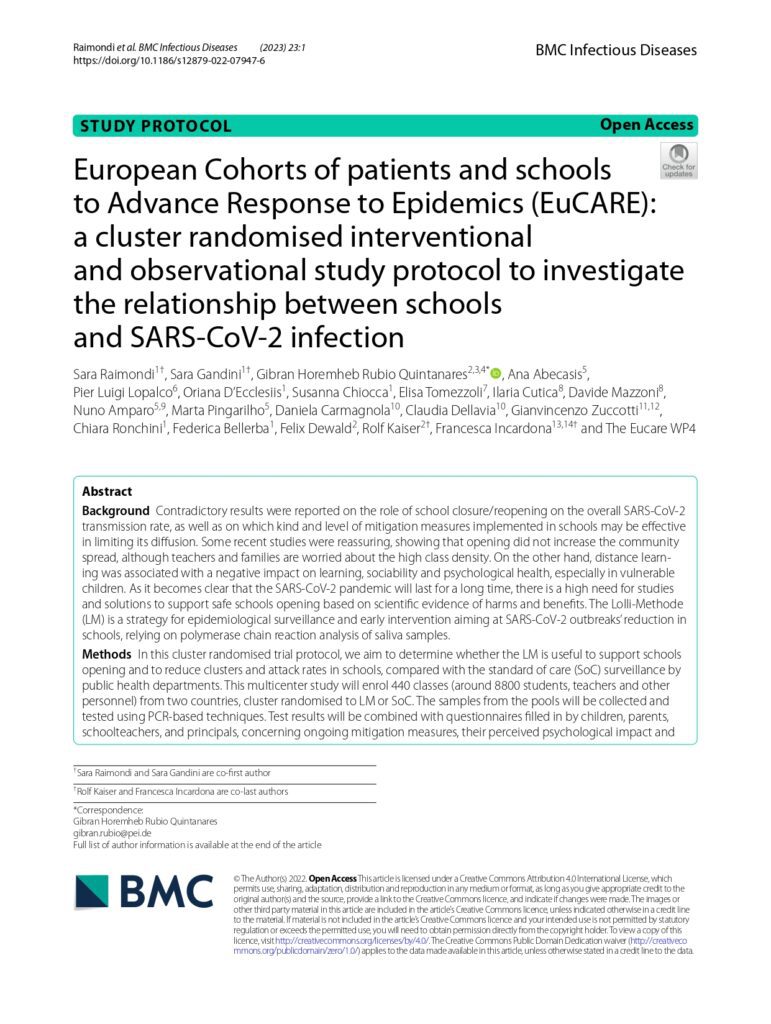Publication links
Abstract
Background
Contradictory results were reported on the role of school closure/reopening on the overall SARS-CoV-2 transmission rate, as well as on which kind and level of mitigation measures implemented in schools may be effective in limiting its diffusion. Some recent studies were reassuring, showing that opening did not increase the community spread, although teachers and families are worried about the high class density. On the other hand, distance learning was associated with a negative impact on learning, sociability and psychological health, especially in vulnerable children. As it becomes clear that the SARS-CoV-2 pandemic will last for a long time, there is a high need for studies and solutions to support safe schools opening based on scientific evidence of harms and benefits. The Lolli-Methode (LM) is a strategy for epidemiological surveillance and early intervention aiming at SARS-CoV-2 outbreaks’ reduction in schools, relying on polymerase chain reaction analysis of saliva samples.
Methods
In this cluster randomised trial protocol, we aim to determine whether the LM is useful to support schools opening and to reduce clusters and attack rates in schools, compared with the standard of care (SoC) surveillance by public health departments. This multicenter study will enrol 440 classes (around 8800 students, teachers and other personnel) from two countries, cluster randomised to LM or SoC. The samples from the pools will be collected and tested using PCR-based techniques. Test results will be combined with questionnaires filled in by children, parents, schoolteachers, and principals, concerning ongoing mitigation measures, their perceived psychological impact and other health and socio-economic information. An ancillary observational study will be carried out to study the prevalence of SARS-CoV-2 in schools, frequencies and size of clusters and attack rates, to compare the effectiveness of the different preventive measures adopted and to evaluate psychological issues in students and teachers in relation to the pandemic’s containment measures.
Discussion
By the end of this study, we will have defined and characterised the applicability of the LM for SARS-CoV-2 surveillance, as well as the impact of pandemic preventive measures on children and teachers.
Keywords
Citation
Raimondi, S., Gandini, S., Rubio Quintanares, G.H. et al. Correction: European Cohorts of patients and schools to Advance Response to Epidemics (EuCARE): a cluster randomised interventional and observational study protocol to investigate the relationship between schools and SARS-CoV-2 infection. BMC Infect Dis 23, 96 (2023). https://doi.org/10.1186/s12879-023-08065-7

